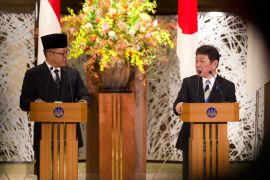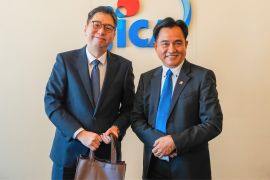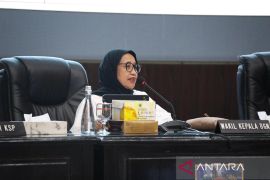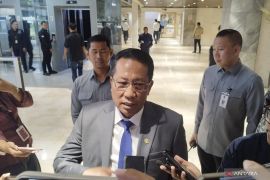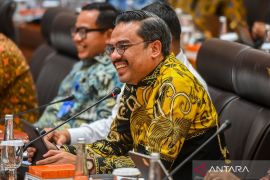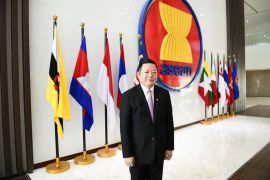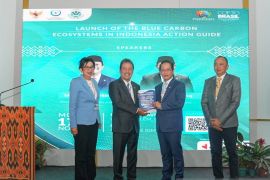SINGAPORE, May 30, 2016 - (Antara) - Southeast Asian countries have the potential to leapfrog ahead of other developing nations by embracing new technologies to transform how people work, live and play, according to a new report by real estate consultancy JLL.
Ahead of the World Economic Forum on ASEAN, taking place in Kuala Lumpur, Malaysia on 1 and 2 June, JLL has released a report looking at how advanced digital technologies could impact countries in the newly established ASEAN Economic Community (AEC), a trading bloc of 10 Southeast Asian nations.
Chris Fossick, Managing Director, Singapore & South East Asia, JLL, says: "In many ways, new technologies will allow people to bypass current constraints and leapfrog into greater efficiency. The impact on real estate and infrastructure in Southeast Asia is likely to be positive and transformational. If harnessed effectively, the changes will bring improved productivity, income levels and quality of life to the population."
Southeast Asian economies are forecast to grow at 5 percent annually until 2020, exceeding global growth of 3.5 percent. The urban population in Southeast Asia's cities is growing by around 2.2 percent annually and the middle income population is set to increase by 70 million to 194 million by 2020.
New ways to work
In the sphere of work, demand for office space will change due to greater outsourcing from developed markets, more flexible work practices, and an increase in co-sharing spaces.
Regina Lim, National Director, Advisory & Research, Capital Markets, JLL and author of the report, says: "While growth in demand for office space slowed after the global financial crisis, Southeast Asia has bucked the trend, with demand expected to grow at 6 percent per year until 2020 due to economic growth, further acceleration of outsourcing from developed markets, and the rise of the middle class. In particular, we anticipate strong growth in demand for office space in Manila and Kuala Lumpur."
The report reveals that traditional corporate occupiers may be giving way to new models of working.
"While automation and artificial intelligence will eliminate some jobs, new jobs are likely to be created. Adoption of flexible working will continue to rise and by 2030, co-working spaces could make up 10 to 15 percent of office stock in Southeast Asia, compared to only 1 to 5 percent today," explains Ms Lim.
Growth of shopping via mobile.
Despite relatively low rates of PC ownership and internet connectivity, online shopping penetration is higher in Southeast Asia than in developed markets such as the US and UK. In fact, 50 to 80 percent of consumers in Southeast Asia living outside cities are bypassing PCs to use mobile phones to shop online. But rather than negating the need for bricks-and-mortar shops, JLL's research suggests it will drive online retailers to expand into physical stores as more consumers choose to 'click and collect' purchases and test products in store.
Changes in lodging habits
In terms of accommodation, home-sharing platforms such as Airbnb and Homeaway will impact both residential and hotel real estate in Southeast Asia. These platforms raise the efficiency with which property is used, freeing up spare capacity such as second homes. Thus there could be a reduction in the number of hotel rooms and residential apartments needed to accommodate the same number of visitors.
About the Fourth Industrial Revolution
The Fourth Industrial Revolution is characterised by the fusion and amplification of emerging technology breakthroughs in artificial intelligence, automation and robotics, multiplied by the extreme connectivity between billions of people with mobile devices with unprecedented access to data and knowledge.
Download JLL's report "The Fourth Industrial Revolution: Impact on Real Estate in Southeast Asia" here. http://access.jll.com/sea-4th-industrial-revolution-insights-2016/
Notes to Editors:
Regina Lim, author of the report, is available for interview. Contact Bee Lin Ang at Beelin.Ang@ap.jll.com (+65 6494 3582) or Eva Sogbanmu (+65 6494 3572) to arrange.
The following JLL spokespeople are available for interview at the World Economic Forum on ASEAN:
- Chris Fossick, Managing Director, Singapore & Southeast Asia
- Sylvia Koh, Head of Corporate Consulting, Asia Pacific
- Susheel Koul, Managing Director, Corporate Solutions, Asia Pacific
- Todd Lauchlan, Head of Indonesia
- Suphin Mechuchep, Head of Thailand
- Jeremy Sheldon, Managing Director, Markets, Asia Pacific
About Jones Lang LaSalle, Inc.
JLL (NYSE: JLL) is a professional services and investment management firm offering specialized real estate services to clients seeking increased value by owning, occupying and investing in real estate. A Fortune 500 company with annual fee revenue of $5.2 billion and gross revenue of $6.0 billion, JLL has more than 280 corporate offices, operates in more than 80 countries and has a global workforce of more than 60,000. On behalf of its clients, the firm provides management and real estate outsourcing services for a property portfolio of 4.0 billion square feet, or 372 million square meters, and completed $138 billion in sales, acquisitions and finance transactions in 2015. Its investment management business, LaSalle Investment Management, has $58.3 billion of real estate assets under management. JLL is the brand name, and a registered trademark, of Jones Lang LaSalle Incorporated. For further information, visit www.jll.com.
JLL has over 50 years of experience in Asia Pacific, with over 33,000 employees operating in 92 offices in 16 countries across the region. The firm won 15 awards at the International Property Awards Asia Pacific in 2016 and was named number one real estate advisor in Asia at the 2015 Euromoney Real Estate Awards. www.ap.jll.com.
Contact:
Bee Lin Ang
Phone: +65 6494 3582
Email: Beelin.Ang@ap.jll.com
Eva Sogbanmu
Phone: +65 6494 3572
Email: Eva.Sogbanmu@ap.jll.com
Reporter: PR Wire
Editor: PR Wire
Copyright © ANTARA 2016

